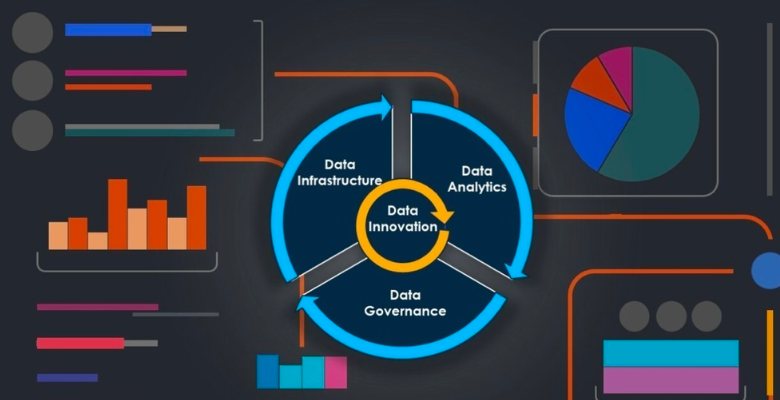The Strategic Role of Data Management Consulting

In the digital era, data has emerged as the lifeblood of businesses, driving decision-making, innovation, and competitive advantage. The exponential growth of data, however, poses significant challenges for organizations in terms of storage, security, and effective utilization. This is where data management consulting comes into play. Data management consulting firms specialize in helping businesses harness the power of their data, ensuring it is organized, secure, and strategically leveraged for optimal outcomes.
I. The Growing Importance of Data Management:

- Data Explosion: The volume of data generated by businesses has witnessed an unprecedented surge in recent years. From customer interactions to operational processes, organizations are inundated with vast amounts of data. Managing this influx effectively is crucial for making informed decisions.
- Strategic Asset: Data is no longer just a byproduct of business operations; it has evolved into a strategic asset. Organizations that can harness the potential of their data gain a competitive edge by uncovering valuable insights, predicting trends, and responding proactively to market changes.
II. The Role of Data Management Consulting:
- Assessment and Strategy Development: Data management consultants begin by conducting a thorough assessment of an organization’s existing data landscape. This includes evaluating data sources, quality, and the overall data infrastructure. Based on this assessment, consultants collaborate with stakeholders to develop a comprehensive data management strategy aligned with business objectives.
- Implementation of Data Governance: Effective data governance is at the core of successful data management. Consultants assist organizations in establishing robust data governance frameworks, defining roles and responsibilities, and implementing policies to ensure data quality, integrity, and compliance with regulatory requirements.
- Data Integration and Architecture: A key challenge for many organizations is siloed data across different departments and systems. Data management consultants work on integrating disparate data sources, creating a unified data architecture that facilitates seamless data flow and accessibility across the organization.
- Security and Compliance: Ensuring the security and compliance of sensitive data is paramount. Data management consultants help organizations implement robust security measures, encryption protocols, and compliance frameworks to protect against data breaches and regulatory violations.
III. The Business Impact of Effective Data Management:

- Informed Decision-Making: With a well-managed data infrastructure, organizations can make data-driven decisions. Consultants enable businesses to leverage analytics and business intelligence tools, providing insights that empower leaders to make informed choices that drive success.
- Operational Efficiency: Streamlining data processes and removing redundancies enhance operational efficiency. Data management consultants identify areas for improvement, implement automation, and optimize workflows, leading to cost savings and improved productivity.
- Customer Experience Enhancement: Understanding customer behavior and preferences is critical in today’s competitive landscape. Through effective data management, consultants enable businesses to create personalized experiences, improve customer satisfaction, and build long-lasting relationships.
IV. Overcoming Challenges in Data Management Consulting:
- Change Management: Implementing data management strategies often requires a cultural shift within an organization. Consultants play a pivotal role in change management, ensuring that teams embrace new processes and technologies.
- Skill Gap Bridging: The evolving nature of data management technologies demands a skilled workforce. Consultants may provide training programs to bridge skill gaps, ensuring that organizations can effectively manage their data infrastructure internally.
- Scalability: As businesses grow, so does their data. Data management consultants design scalable solutions that can accommodate increasing data volumes, ensuring that organizations can adapt to evolving needs without compromising performance.
V. Case Studies: Realizing Success Through Data Management Consulting:
- Global Retailer Enhances Customer Engagement: A multinational retail giant partnered with a data management consulting firm to integrate customer data from various touchpoints. This resulted in a comprehensive customer profile, enabling targeted marketing campaigns and personalized shopping experiences. The retailer reported a significant increase in customer engagement and sales.
- Financial Institution Achieves Regulatory Compliance: A leading financial institution faced challenges in complying with evolving regulatory requirements. Data management consultants implemented a robust governance framework, ensuring that the institution could adapt to changing regulations seamlessly. This not only reduced compliance risks but also enhanced overall data security.
VI. Future Trends in Data Management Consulting:

- Artificial Intelligence and Machine Learning Integration: The integration of AI and machine learning in data management is set to revolutionize the field. Consultants will leverage these technologies to automate data processes, predict issues, and uncover deeper insights.
- Edge Computing and Decentralized Data Management: With the rise of edge computing, data management consultants will explore decentralized approaches to data storage and processing. This will enable organizations to manage data closer to the source, improving speed and efficiency.
- Blockchain for Data Security: Blockchain technology holds promise in ensuring the integrity and security of data. Data management consultants will likely explore blockchain solutions to enhance data security and transparency, particularly in industries with stringent regulatory requirements.
Conclusion:
In the age of information, effective data management is a prerequisite for organizational success. Data management consulting serves as a guiding force, helping businesses navigate the complexities of data, unlock its potential, and stay ahead in a competitive landscape. As the digital landscape continues to evolve, the strategic partnership between organizations and data management consultants will play a pivotal role in shaping the future of business.
Conclusion: So above is the The Strategic Role of Data Management Consulting article. Hopefully with this article you can help you in life, always follow and read our good articles on the website: W Tài Liệu


